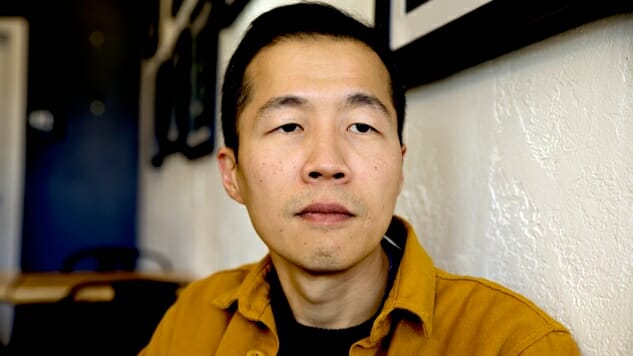Stop Admiring and Start Remembering: Isaac Chung Discusses his Sundance-Winning Minari
Photo by Michael Dunaway
All week long, I wondered if Lee Isaac Chung’s Sundance film Minari, starring Steven Yuen, was as good as I thought. Was my judgment being clouded by the fact that Chung is a friend, and the subject matter and tone right up my alley? After the film walked away with both the Audience Award and the Grand Jury Award, I can confidently say my initial reaction was on the money. Chung sat down with me at an off-the-beaten-path Park City café to discuss the film.
Paste Magazine: Thanks for giving us some time today to talk about your incredible film, Minari. It’s my favorite film at Sundance. It’s just so moving. It reveals its genius slowly, like a flower opening up. It’s a real achievement. In this film, it’s the husband’s dream that they’re really pursuing. For many artists, there’s this sort of tug of war between one’s dreams and one’s family. Do you want to talk either about how it grew out of your own thoughts, or stories that other others have told you?
Isaac Chung: First, thanks so much for that introduction. So, yeah, the film kind of came out of piecing together about 80 memories that I have of growing up in Arkansas. It’s something I started to do after my daughter was born. I started to think about the types of films I want to make, and I wanted to leave something that would last for her. A couple of years ago, I had read this quote from Willa Cather about how her work really began when she stopped admiring and started remembering. She’d been trying to let her work basically be so influenced by other writers, or so much in the vein of what was in style at that time, that she was not really just doing the work of mining her own life.
Paste: Wow.
Chung: She finally started to write about her own life and My Antonia was one of the first works of her own experiences growing up in Nebraska on a farm. That was really inspiring for me. I don’t want to remake her book, but I want to remake that sort of process. So I just started to remember all these different things from childhood and growing up on the farm. I noticed that it was all centering around the time when I was around my daughter’s age, like what I was doing was kind of seeing the world and seeing my memories through her eyes. Since she’s been born, it’s almost as though my perspective has completely shifted so that I see so much of the world through her eyes.
Paste: How old is she now?
Chung: She’s six-and-a-half-years old now. She acts like she’s middle-aged sometimes. But one of the first memories I have is that my dad took us to this mobile home in the Ozark mountains in Arkansas and just said, “Hey, this is our house.” And my mom’s crying and saying, are you kidding me? What is this place? For me growing up, I always knew my dad was pursuing things that were a little bit wild and different and really reaching for the stars in his own life to create. He wanted this vast land in America, like these old Hollywood westerns, like the big country and all these things like—
-

-

-

-

-

-

-

-

-

-

-

-

-

-

-

-

-

-

-

-

-

-

-

-

-

-

-

-

-

-

-

-

-

-

-

-

-

-

-

-








































